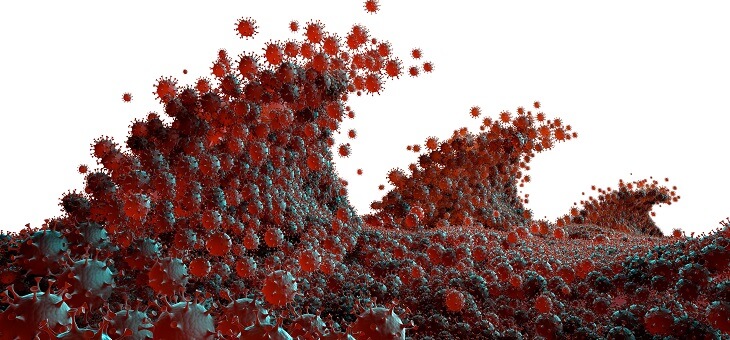Ah, COVID – the ‘gift’ that keeps on giving. We are now into the third year of this pandemic and there appears to be no end in sight, particularly here in Australia, which is now one of the world’s COVID hotspots.
If you have been lucky enough not to contract the virus, spare a thought for those who have, whether they experienced mild or severe symptoms. And spare another thought for a ‘special’ group of Australians, now numbering in the tens of thousands, who have contracted COVID for a second time.
The accepted definition of ‘COVID reinfection’ is a second contraction of the virus that occurs at least three months after the first. In Victoria alone, more than 20,000 people have been diagnosed this way. The figure for NSW is upwards of 11,000.
Read: Can you still spread COVID after isolation?
Indications are that more than half of the reinfections have occurred since the Omicron variant arrived in Australia late last year.
While a wide range of symptoms has been reported by those unfortunate enough to be hit a second time, some say they were affected far more seriously than the first time.
Perth teacher Kylie Lund is one such case. Triple-vaccinated, Ms Lund says she experienced “worse hangovers than my first COVID”, but was “floored” when she was reinfected. “It’s such a weird virus,” she concluded.
According to the Department of Health’s Health Direct website, your chances of being reinfected once you’ve had COVID are lower, but just how much lower is hard to pinpoint. Your protection levels “depend on factors like your age and immunosuppression”.
Read: The drugs that could stop you ending up in hospital with COVID
Evidence does suggest, however, that the reinfection rate is quite low.
Professor Peter Richmond, of the Telethon Kids Institute, said that data from overseas showed reinfections were not common, with about one in every 2000 infections being a reinfection.
“It is relatively rare, to be honest, and is generally not associated with a particularly severe second infection,” Prof. Richmond said, although Ms Lund’s experience shows that is not always the case.
For those who have had COVID once, and are looking to avoid an experience like Ms Lund’s, the advice is slightly ambiguous, at least in terms of vaccination.
The Department of Health says: “There are no safety concerns with having a COVID-19 vaccine dose within three months of having COVID-19. However, a gap of three months between infection and vaccination is likely to lead to a better immune response and result in longer protection from reinfection.”
Read: Vaccines only partially effective against long COVID, study finds
If you have been vaccinated within three months of a COVID-19 infection, you do not need to repeat any doses.
Exceptional circumstances may dictate getting vaccinated earlier than the recommended three-month interval, for example those starting an immunosuppressant, those planning overseas travel or those who cannot reschedule vaccination easily.
If you have been unfortunate enough to have contracted COVID and wish to avoid a second bout, the advice for preventing reinfection remains the same as that which applies to a first infection.
The Health Direct website says: “Vaccination is the best way to protect yourself against reinfection. It’s also important to keep up measures like hand washing, wearing a mask and physical distancing.”
If you enjoy our content, don’t keep it to yourself. Share our free eNews with your friends and encourage them to sign up.

